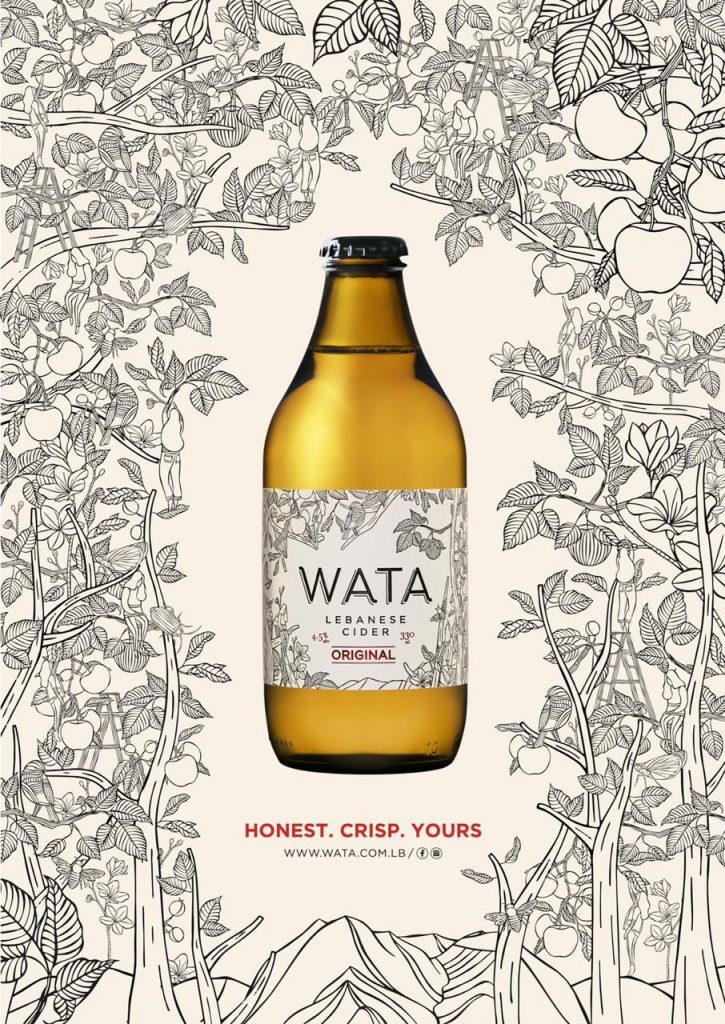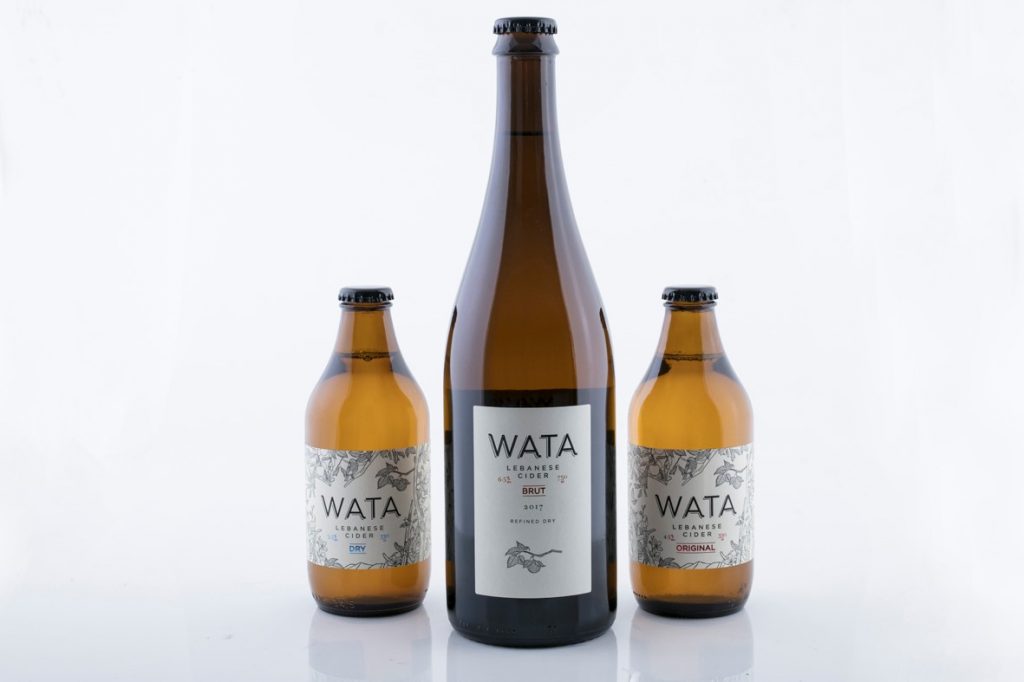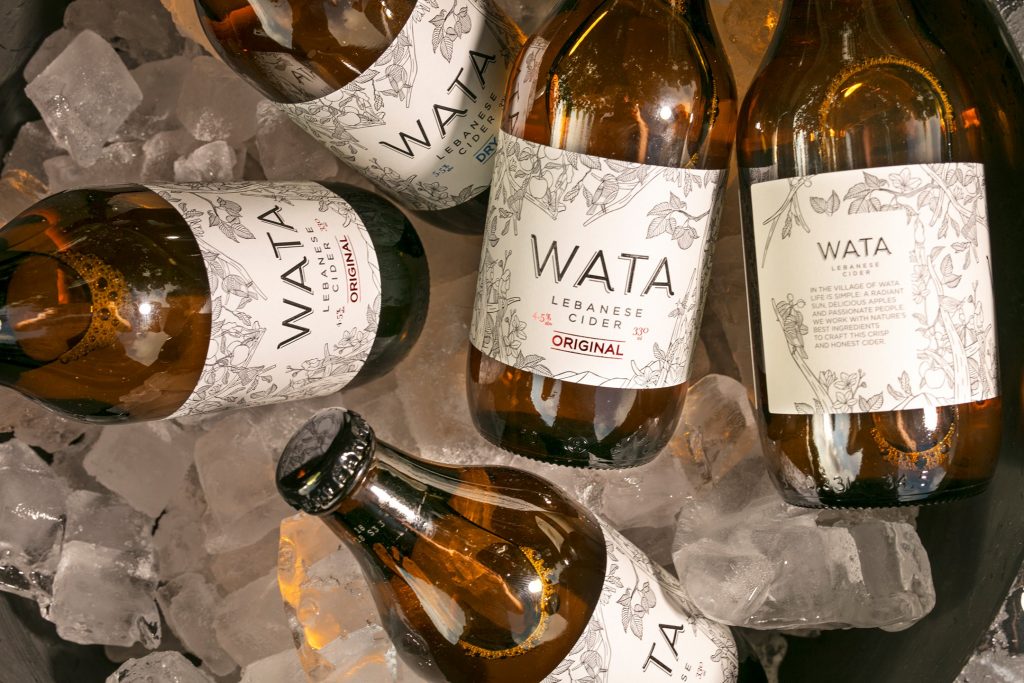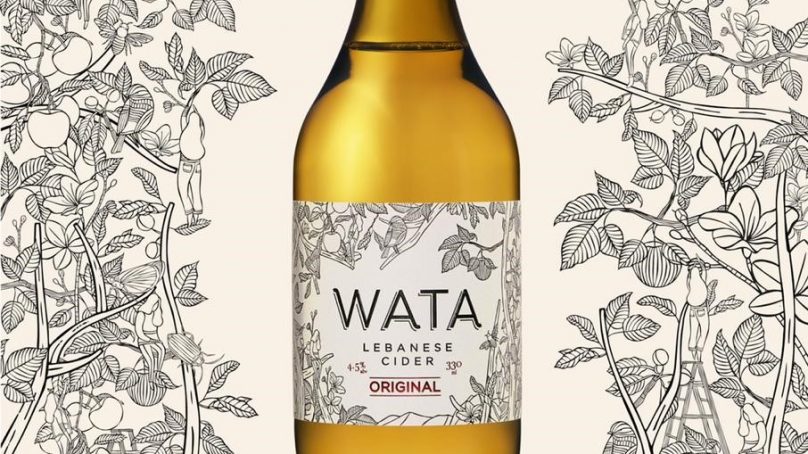
HN talks with Soha Frem, Founder of WATA Cider to learn how and why this young woman quit her job, enrolled in a cider-making program and eventually founded her own brand in 2017.
How has your connection with the family orchard and nature affected the brand?
The connection with nature nurtured our love of our terroir and the need to take care of it. We wanted to craft a product that carries the quality of our apples and the care we pour into our orchard. Our childhood in Wata always inspired and pushed our creative limits, which we wanted to build on through the product that communicates the modern hipster’s lifestyle, respect for the land and risk-taking. Furthermore, this passion we have for the land has pushed us to find a solution to the apple crisis that has plagued Lebanon for quite some time. The idea of WATA Cider arose out of a need to save our apples and the prospect of eventually being able to support a wider sector of our famers’ community. Today, WATA Cider tries to build awareness around the issue by growing a bigger pool of conscientious consumers.

What characterizes your terroir and on what basis were the three varieties of cider chosen?
The orchard, which has been in the family for four generations, was planted sometime in the 60s with two common apple varieties to Lebanon, Golden Delicious and Starking Delicious. With the emergence of more competitive cultivars in Lebanon, some of the old varieties were replaced by varieties like Granny Smith, Gala, Fuji and others. Today, our orchard follows an IPM program (Integrated Pest Management), a method that allows minimal use of pesticides to prevent the disruption of the agri-ecosystem without leaving any chemical residue inside the apples at harvest time, as well as ensures an economically viable yield.
When we first started developing the product, we devised micro fermentation with all the varieties available to us in the orchard. We finally arrived at three potentially-suitable offerings. The criteria for choosing those varieties were based on, AbV (Alcohol by Volume), aromas and available volume.
What are some of the challenging obstacles faced and what is your growth strategy?
The main challenges are, lack of awareness about cider, financing and building the required infrastructure and finding neighboring orchards willing to adopt the IPM program. In relation to future growth strategies, I believe it is too early to discuss. However, what I am certain of, is that we do not intend to become an industrially-mass produced product, so as to avoid compromising on quality. More importantly, our challenge is to scale in a way to serve our target community locally, regionally and internationally.
In light of other local cider brands, how are you highlighting your offering, especially since the existing producers have had a head start?
We are the only cider-based orchard, which means that we control the process of our apples from growth to picking and sorting, because we believe quality comes first. The cider we make is also a fine modern beverage suitable for an array of occasions.

How is your operation easing the brunt of Lebanon’s apple crisis?
Aside from using quality apples from our own orchard and from neighboring farmers, we are employing modern processing techniques and working with international cider makers to maintain consistency and ensure a progressive brand identity. Our vision is to grow and support a wider section of the farmers’ community not only in terms of buying their yield, but also strengthening their ability in developing best practices in agriculture for quality and safety. In parallel, building consumer awareness on this issue is the first step towards supporting the apple industry.
Who would you say is your target audience and why?
On the scale we are operating (in terms of volume and pricing), it is definitely a niche product that attracts and speaks the language of the more conscious consumers, who are socially aware, adventurous and maybe even trendsetters in their own right!
facebook.com/watacider
Add to Favorites 

















